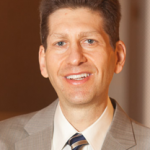
Want to know why the underserved or those without a voice or coherent, unified voting block get screwed?
Want to see what happens when powerful interest groups are threatened?
Want to know why our political system will not respond to need, but to muscle?
Click
Here
And
Get
The
Correct
Answer!
Imagine sitting in a room, appointment after appointment, conversation after conversation–and all you hear is, “if you touch us, it’s the patients that will suffer.”
Also, there is no such thing as a quid pro quo (that is against the law)…”but we hear it is going to cost a billion dollars to run a presidential campaign in 2012. That sure is a lot of dough. How the heck do you fill a honey pot like that?”
Yup, the answer is do not touch health care, sacred cows that we are. Nobody gives an inch, and we will all be just fine.
Peter Fisher, undersecretary of the Treasury in 2002: “Think of the federal government as a gigantic insurance company (with a side line business in national defense and homeland security) which only does its accounting on a cash basis—only counting premiums and payouts as they go in and out the door. An insurance company with cash accounting is not really an insurance company at all. It is an accident waiting to happen.”
About the Author: Bradley Flansbaum

Bradley Flansbaum, DO, MPH, MHM works for Geisinger Health System in Danville, PA in both the divisions of hospital medicine and population health. He began working as a hospitalist in 1996, at the inception of the hospital medicine movement. He is a founding member of the Society of Hospital Medicine and served as a board member and officer. He speaks nationally in promoting hospital medicine and has presented at many statewide meetings and conferences. He is also actively involved in house staff education.
Currently, he serves on the SHM Public Policy Committee and has an interest in payment policy, healthcare market competition, health disparities, cost-effectiveness analysis, and pain and palliative care. He is SHM’s delegate for the AMA House of Delegates.
Dr. Flansbaum received his undergraduate degree from Union College in Schenectady, NY and attended medical school at the New York College of Osteopathic Medicine. He completed his residency and chief residency in Internal Medicine at Long Island Jewish Medical Center in New York. He received his M.P.H. in Health Policy and Management at Columbia University.
He is a political junky, and loves to cook, stay fit, read non-fiction, listen to many genres of music, and is a resident of Danville, PA.



This is not morality, it is math. Yes, we all know older, whiter and richer vote more. But some highlights bearing in mind that voter turnout rates are exaggerated by demographics: From US Census Bureau Data:
76% of voters in 2008 were white, non Hispanic (they year of Obama)
For all the talk of the coming Hispanic voter, only 7% of voters were Hispanic. (Maybe undue influence in swing states)
12% of voters were black, even with President Obama heading the ticket
Naturalized (non-native) citizens constituted 6% of the vote
Age under 35: 25%
Age over 50: 49%
Income under 30K: 10% of vote
Income over 75K: 37% of vote
After multivariate adjustment independent predictors of odds of voting:
Being over the age of 65: 3X the odds of voting (compared to 18-24 year old)
Compared to less than high school educational attainment:
HS Grad: 2X odds of voting
Some College: 4.4X odds of voting
College or more: 8.8X odds of voting (By far the strongest predictor and tracks tightly with income)
Yes, some districts are not competitive, but these are Presidential years. So why would a politician aim policies at non voters? Why should they?
People are elected not to save their souls or achieve salvation, but to represent those who elected them.
If the poor, less educated, and non-white voted (remember we are talking about citizens here, nothing to do with being able to vote), things (e.g the Supreme Court) would look much different.
Lots of money is thrown around on all sides. Right and left spend. But those who tend to be more conservative vote way out of proportion to their numbers. Add in key screwy factors like the US Senate (equal power to NY and Wyoming) and you can see why the squeaky wheel…..
Why should the AARP (a trade group for those on social security, in essence) traffic in SS cuts? If SHM sold out hospitalists would you pay your dues? It is not AARP’s job to balance the budget. Their lobbying power is not in the pens or money they give out, but in the votes they deliver. If the young voted, the AANRP would lobby too.
All true.
My only response:
“People deserve the government they get, and they deserve to get it good and hard.”
—HL Mencken
So much for social justice.